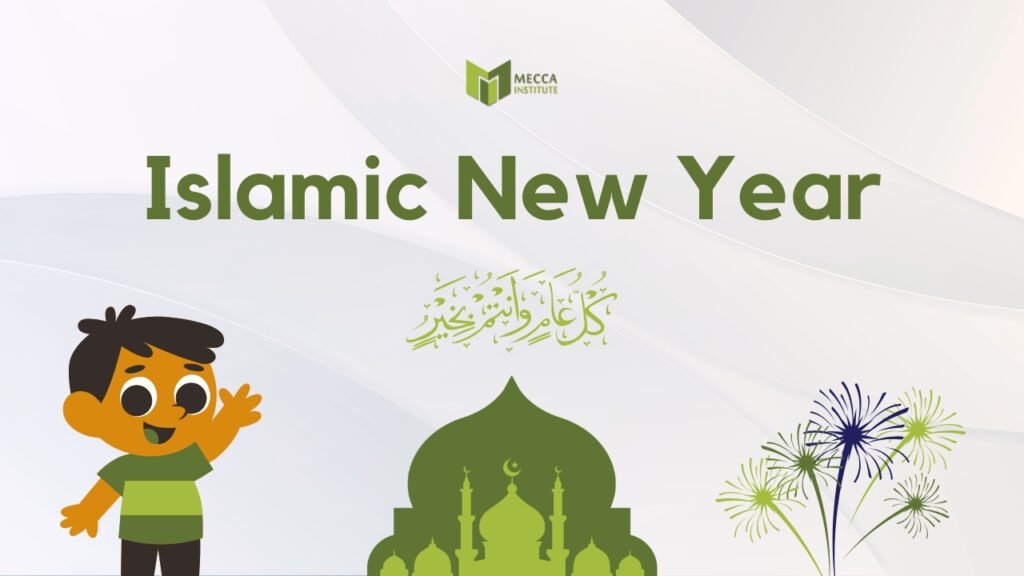Islamic New Year is a popular holiday across the Muslim World, says Imam Daayiee Abdullah, noting it has diverse celebrations.
I did not grow up in a Muslim culture, but having been in the Islamic faith for the majority of my life now I can appreciate celebrations.
My many years of living in Muslim communities across China, Egypt, Saudi Arabia and more, I have come to realize that celebrations are unique in different cultures.
In this guide, I will describe the source of the Islamic New Year, traditions associated with it, including foods and even how to greet Muslims on this happy occasion.
Hijri New Year
What is the Islamic New Year? The Islamic New Year is has also the second name of Hijri New Year among Muslims. It’s a significant event for the community because it marks the migration of Prophet Muhammad and Muslims from Mecca to Medina in 622 AD.
Hijir New Year is based on the Islamic calendar, which consists of 12 months in a year of 354 or 355 days. This differs from the widely used Gregorian calendar.
The Islamic calendar is about 11 days shorter than the civil Gregorian calendar. It’s not synchronized with the solar year, and it does not have a correction mechanism like leap days in the Gregorian calendar to account for the deviation. As a result, dates fall earlier on the Gregorian calendar each year.
Plus, in many Muslim cultures, the Islamic New Year is determined by the sighting of the new moon, and the first day of Muharram, the first Islamic month, marks the Islamic New Year’s Day.
Therefore, the Islamic New Year changes dates due to the differences between the lunar and solar calendars, and the reliance on the sighting of the new moon to determine the start of the new year.
As with many other holidays, Islamic New Year can lead to a four-day weekend even in civil calendars. When it fell on a Thursday in 2020, the Indonesian government passed a special decree to make the entire weekend a holiday.
Islamic New Year Traditions

As previously described, Hijri New Year is another name for the Islamic New Year. It is a major holiday Muslims around the world observe.
Traditions vary across different cultures, but common practices around everywhere. Some popular celebrations include attending special prayers at the mosque, reflecting on the past year, and setting intentions for the year ahead.
Like the end of Ramadan holiday, families come together for festive New Year meals. In many cultures, they exchange gifts, and give to charity as a way to start the year with generosity.
Some communities hold processions and cultural events to celebrate the beginning of the new year. This is especially popular in Africa and Asia.
It’s also a time for self-reflection, forgiveness, and expressing gratitude for blessings. Meditations, including dhikr, are popular during this time of the year.
These traditions vary by region and individual interpretation. It also has to do with the madhab or denomination, or even schools of thought within major denominations, some of which prohibit celebrations.
Progressive Muslims, of course, welcome all types of people, including ones who do not celebrate.
Islamic New Year Foods
Like many other festivals, there are foods associated with the Islamic New Year. In many Muslim cultures, people celebrate the day with traditional dishes that are culturally significance.
Some common traditional foods enjoyed during this time include sweet treats like halva, baklava, and dates, as well as various types of pastries.
Baklava is popular across the Middle East, wheres beignets are popular in West Africa. And in South Asia, Gulab Jamun is popular, whereas red bean buns is popular in East Asia.
These sweets dishes symbolize prosperity, sweetness, and the sharing of blessings with loved ones. This is why they are popular and fitting for the celebratory atmosphere of the new year.
Meanwhile, modern young Muslims celebrate with cakes and soft drinks. For example, in the Middle East, laziza, which is a non-alcohol malt beverage, has become very popular in the past two decades.
Islamic New Year Wishes
On the occasion of the Islamic New Year, Muslims exchange greetings and well-wishes with each other. In many cases, they have a spiritual message in them.
The most popular Arabic greeting is “All year may you be blessed” (كل عام وانتم بخير). As you can see the “blessing” part of this makes it more religious.
In other major Muslim languages, you will hear “Happy New Year” as in “نیا سال مبارک ہو” in Urdu, and “Barkanmu da sabon shekara” in Hausa.
Some common expressions include “May the new year bring you peace, prosperity, and blessings,” “Wishing you a year filled with joy, faith, and success,” and “May Allah’s blessings be with you in the new year and always.”
Others may say “Happy Hijri New Year, may it bring you closer to Allah and fill your life with happiness.” Another might say “As the new year begins, may your heart be full of love, your soul with spiritual strength, and your mind with wisdom.”
So as your friends how they greet each other for the new year.
Conclusion
As the Islamic New Year dawns, may the light of hope and faith illuminate your path, guiding you towards success and happiness.
May this year bring you blessings, peace, and prosperity, and may your heart be filled with gratitude and joy.
Let this new beginning be a time of reflection and renewal, as you strive to strengthen your connection with Allah and embrace the teachings of the Prophet Muhammad.
May your days be filled with kindness, your nights with tranquility, and your soul with contentment.
Wishing you and your loved ones a blessed Islamic New Year filled with love, grace, and fulfillment.
May Allah continue to guide us all.
Imam Daayiee Abdullah is the Executive Director of MECCA Institute and the author of “Progressive Islam,” a historic book that defines Progressive Islam.

